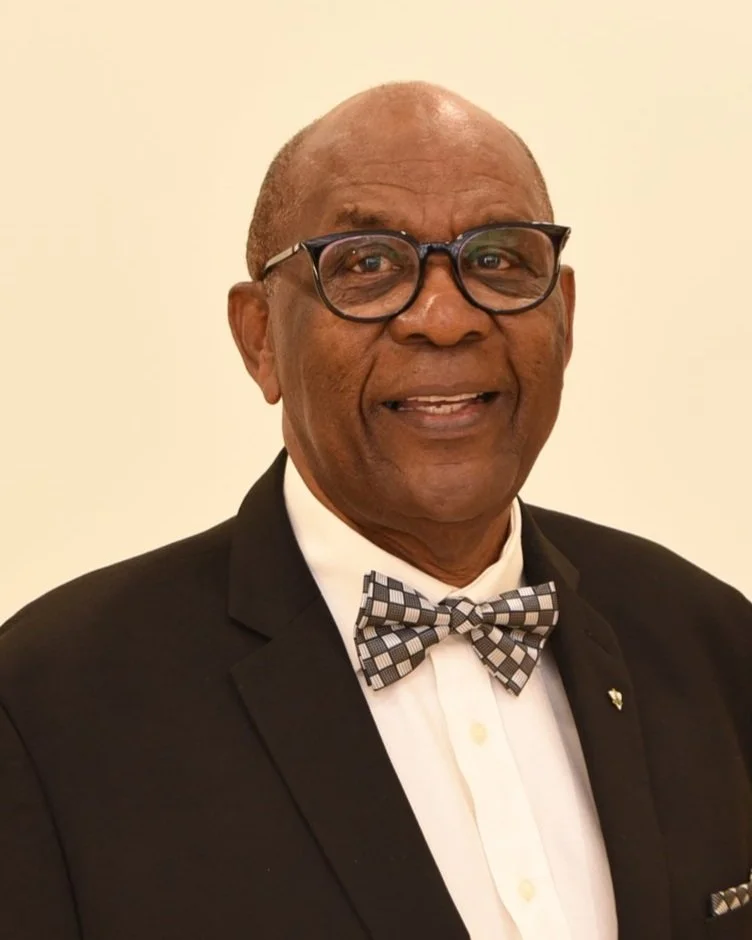John Devenish recalls impact of Harry Jerome Award on his career
February 8, 2021
John Devenish was over the moon when Canadian legend Carrie Best nominated him for a Harry Jerome Award in 1987.
It got even better when he was invited to showcase his artistic talent at the event to celebrate excellence in Canada’s Black community.
Devenish performed a rendition of ‘Summertime’ on piano that caught the attention of late dancer/choreographer Len Gibson who was the first Black dancer in Canada to train in classical ballet.
At the time, Gibson was part of a group working with deceased stage director and Toronto Workshop Productions founder George Luscombe to mount ‘Mister Jelly Roll’.
“Len came up to me and said, ‘I am going tell George you need to be in his play’,” recounted Devenish who had moved to Toronto from Portage la Prairie, a small city in Manitoba, two years earlier. “I went down, met with George and was in the show.”
Jamaican-born actor/singer Denis Simpson, who died 11 years ago, appeared in the musical as the legendary jazz pianist Jelly Roll Morton. The cast also included award-winning vocalists & actresses Jackie Richardson and Arlene Duncan, Montreal-born singer Cecile Frenette and late American-born vocalist Theodore Gentry who spent 35 of his 63 years in Toronto.
Devenish was in awe of being in the presence of some extremely talented performing artists.
“I worked with them, did that play and had a great time with that show,” he said. “All of that was possible because of the Harry Jerome Award I received.”
Of the nine winners that night, four have died, including painter Denyse Thomasos and Stanley Grizzle.
“I stayed in touch briefly with Denyse after she had gone away to school and a little bit afterwards,” said Devenish who also plays the clarinet and keyboard. “I was devastated when I learnt she had passed away.”
While on a Toronto Transit Commission bus several years ago, he ran into Grizzle who, with the late Bromley Armstrong and Dr. Dominick Shelton, are the only two-time Harry Jerome Award winners.
“I was sitting behind Stan when I realized who it was and we got to talking and reminiscing about the night we won our awards,” said Devenish who was cast in the Canadian premiere of ‘Ma Rainey’s Black Bottom’, ‘Soul Food’, ‘Must Be Santa’ and ‘The Place Where God Began’ presented by Canadian Geographic.
He met Best in the early 1980s while he and his younger sister were performing at the National Arts Centre in Ottawa.
In 1946, she became the first Black owner and publisher of a Nova Scotia newspaper and, eight years later, launched her own radio show, ‘The Quiet Corner’, that aired on CBC Radio Halifax for 12 years.
“She came over and introduced herself to us,” he recalled. “She was very enamoured with the work we were doing. Her grandkids also performed at the Ottawa Music Festival, so I got to know her very well and went to her home in New Glasgow on several occasions.”
Devenish was surprised when Best nominated him for a Harry Jerome Award.
“I knew who Harry Jerome was, but I didn’t know there was an awards ceremony bearing his name,” he pointed out. “I was even more excited to learn that my community was supporting young people who were doing great things in the arts.”
Best, said Devenish who was on the inaugural Wychwood Barns Community Association Board of Directors, was larger than life.
“She had to be that way because of the challenges she faced,” he said. “This was a very sweet woman who championed excellence and never got tired of telling stories about Blacks who were treated indifferently in Nova Scotia. She had a small little red hair dog named Guy who knocked the receiver off the phone if she didn’t hear it and then went to find her.”
Someone Devenish wished he had met was C.L.R James who was his maternal grandmother’s cousin.
Born in Trinidad in 1901, he was one of the most foremost thinkers of the 20th century. Devoted to literature, the Marxist philosopher and cricket aficionado authored several groundbreaking books, including ‘Beyond A Boundary’ which is considered the best cricket book.
James died in 1989 in Brixton.
“I never met him, but the family constantly brags about him,” said Devenish whose son, Justin Devenish aka Fasttoe, is a Graphic Designer. “For many of us, I think he embodies the ability to take an audacious and rebellious spirit and turn it into something that had the capacity to change things in the world. Coming out of a small Caribbean nation and being able to go into the world with this grandeur was massively impressive. Here was someone who was fearless and absolutely didn’t care about what others thought of him as he was going along becoming who he was and just being who he was. He was way ahead of his time.”
Devenish’s parents, who migrated from the United States in the mid-1950s, died four years apart in the late 1990s.
They played an integral role in the development of the Child Study Centre in Ottawa. The Centre was designed for children with psychological and behavioural issues.
A psychologist by training, Arthur Devenish was a university professor and jazz lover who enjoyed listening to shortwave radio transmissions.
“We did a lot of moving from Winnipeg to Ottawa and with family in the United States and one of the big things I remember with my father when we were in Ottawa was French-English politics,” he said. “He had a way of taking the devil’s advocate side. In those days, there were about seven or eight daily newspapers in our house because he wanted us to have perspectives from all sides. He was a champion in the old days in the concept of sovereignty. Growing up with that kind of sensibility, we weren’t polarized in our thinking. We had empathy and tried to put our feet into someone else’s shoes.”
Sheila Devenish was a special education and music teacher and Loyalist.
“She instilled the love of music in me and my sisters very strongly,” he said. “It was all kinds of music, classical, gospel, jazz and show. Her big thing was practicing, doing it as well as you can and appreciating people who are really good at what they do. Earlier, we did a lot of classical music that’s the standard training, but there was always respect for all kinds of music on any given evening blaring through the house. With the kind of musician, teacher and artistic force my mother was and her mother was, music involvement in the family, from very young to some degree, was an understood given.”
John Devenish (Photo by Justin Morris)
A 1985 graduate of Carleton University’s Musicology program and Humber College’s Radio Broadcasting Postgraduate Certificate program five years later, Devenish also completed a four-year French Language instruction in Music Performance at the Conservatoire de Musique du Quebec.
He was the Classical 96FM host for five years and an actor at the Roseneath Theatre for 11 years prior to becoming the ‘Dinner Jazz’ host from Monday to Friday on Jazz FM91.1 in 2011.
Devenish was the male narrator for the Globe & Mail ‘Facts & Arguments’ podcasts and the ‘Dear Sweetheart’ series featuring letters home from a Canadian soldier overseas during the Second World War. He also did voice work for a short film feature in the Halifax Chronicle Herald’s Titanic celebrations series, contributed to major art installations in Toronto and Ottawa and was the Project Co-ordinator for the public art piece, ‘The Community Totem’ generated by Art Starts.
Outside of the arts, he has been quite active in social and developmental service sectors.
A Psychiatric Nurses Aide with the Manitoba Development Centre in the mid-1980s before relocating to Toronto, Devenish has been a Community Living Toronto Assessment & Referrals Co-ordinator for the last 16 years.
“I do functional assessments to determine whether or not individuals who live independently and have developmental disabilities can get adult protective services workers,” he said of his role.
Devenish, who worked in residential settings and group homes, has two sisters.
Judith Forde, who is 20 years older, resides in Brooklyn, New York and Allyson Devenish lives in England and is the artistic director of NitroVoX that’s an cappella group that tell stories about the African Diaspora through song and spoken word.”







